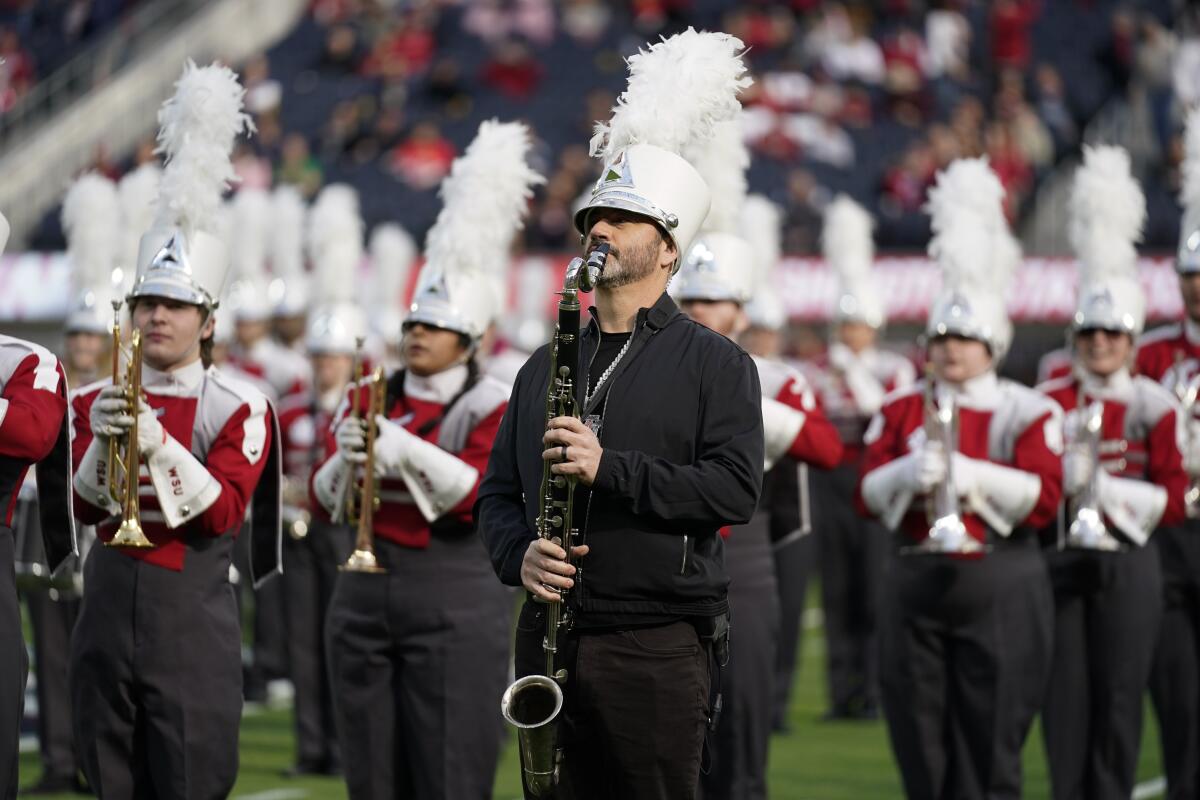LA Bowl will reportedly shut down after Saturday’s game
The LA Bowl will crown its last winner when Washington and Boise State play Saturday, according to On3.com’s Brett McMurphy.
Hollywood Park, which is owned by Stan Kroenke, operates the LA Bowl. The game’s six-year contract is scheduled to end after Saturday’s game and it will not be renewed. The game was created in 2020, matching the Mountain West champion against the fifth selection from the Pac-12. The collapse of the Pac-12 as a power conference made it increasingly difficult to complete the bowl field, but other factors have made bowl season more challenging for game organizers.
Hollywood Park officials declined to address whether the game is folding.
“We anticipate a highly exciting and competitive matchup,” a bowl spokesperson told The Times on Thursday. “Discussions regarding any future plans for the LA Bowl will be deferred until after the game.”

Celebrity host Jimmy Kimmel plays an instrument and marches with the Washington State band before the 2022 L.A. Bowl.
(Ashley Landis / Associated Press)
The importance of bowl games have been shifted since conference realignment and the collapse of the Pac-12 as a power conference, the expansion of College Football Playoff, changes to the transfer portal dates and teams declining to participate in non-playoff games.
During this year’s bowl selection, programs such as Notre Dame, Kansas State and Iowa State declined their invitations. When it was time for the Birmingham Bowl to find an opponent for Georgia Southern, a number of 5-7 teams reportedly turned down invitations before Appalachian State agreed to play.
Throughout its contract, the LA Bowl winners have been Nevada Las Vegas in 2024, UCLA in 2023, Fresno State in 2022 and Utah State in 2021. Its debut game in 2020 was canceled because of the COVID-19 pandemic. The game has had four sponsors during its brief run and featured celebrities Jimmy Kimmel and Rob Gronkowski as hosts included in the bowl’s official name.
